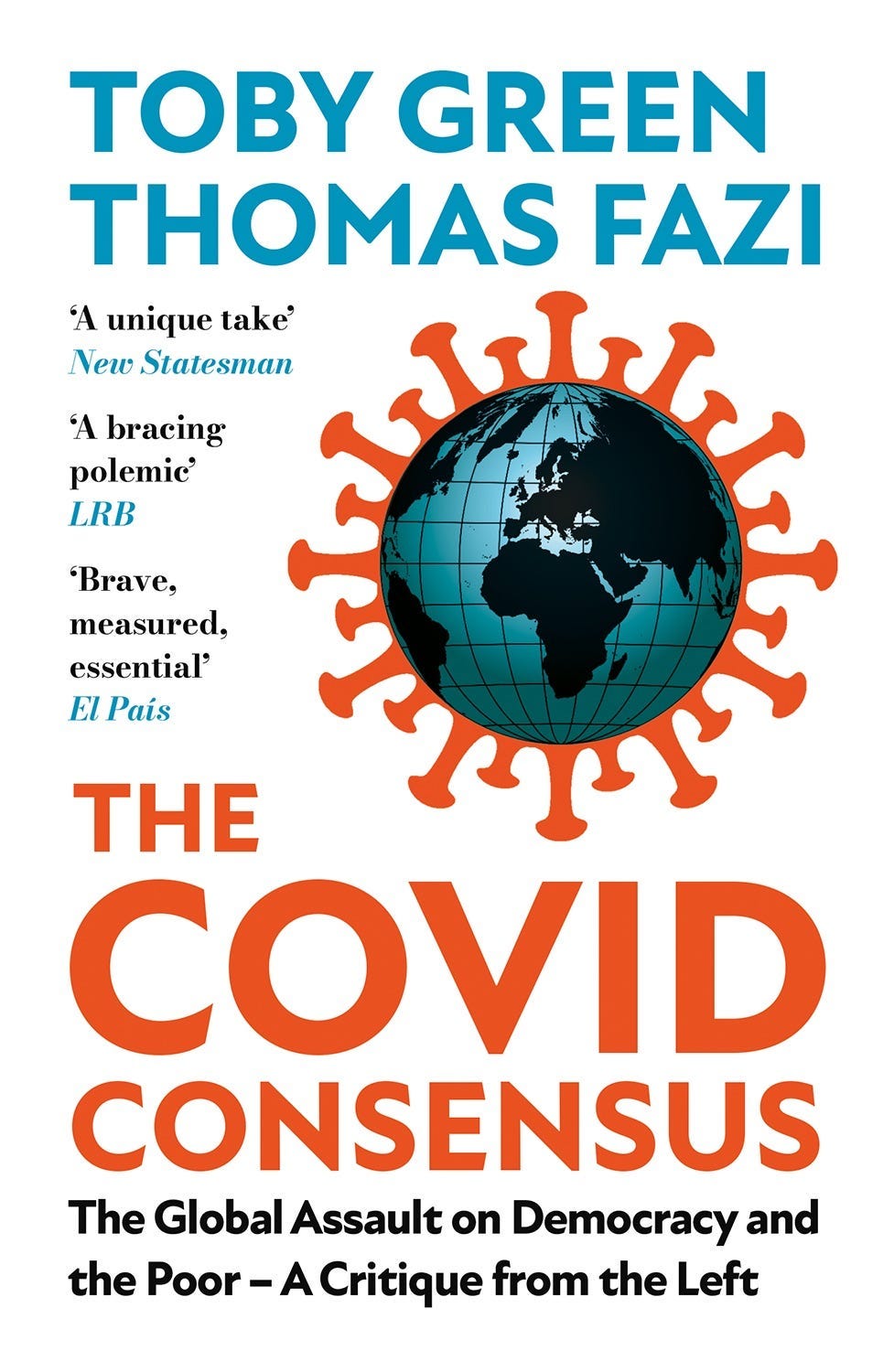The dangers of carbon farming — an unholy alliance between finance, big agro and environmentalism
Increasingly, farmers are no longer encouraged to grow food but carbon credits
All over Europe, farmers — especially small farmers — are revolting against the growing economic and bureaucratic burden of the EU’s climate agenda. But the worst is yet to come. In a new report published today, written for the think tank MCC Brussels, I shed light on a little-known threat to European agriculture: carbon farming.
Under the guise of environmentalism, a strange transformation is taking place. Farmers are no longer encouraged to farm crops, rear animals, or produce animal products. Instead, they have a new product to farm: carbon credits.
The report reveals an unholy alliance of big finance, corporate agri-food enterprises and environmentally-minded NGOs and bureaucrats who have identified farms as a source of a new, precious commodity: a license to emit carbon.
The idea is simple, and at first glance even rather alluring: since soil and plants have the ability to capture and store carbon from the atmosphere — which is why they are known as “carbon sinks” — why don’t we increase the extent of grasslands and forests throughout Europe? Not only would we end up with greener habitats, literally, but we would also be contributing to the fight against climate change. What’s not to like?
Well, as it turns out, quite a lot. A first problem with this idea is that a big chunk
of Europe’s land area is currently used for agriculture, which means converting land currently used for crops and pasture into permanent grassland and/or forestry. Hence the term carbon farming: the idea is that farmers should become “land managers” — or carbon farmers.
From the perspective of Europe’s policymakers, this is not a problem at all; in fact, it’s a double win: as the second-largest contributor to greenhouse gas emissions, agriculture has naturally ended up in the crosshairs of net zero advocates — first and foremost the European Union.
Hence the various measures rolled out in recent years to reduce emissions in the agricultural sector. These have sparked massive protests across the continent — from Germany to the Netherlands, from France to Italy — by farmers angry about the growing economic and bureaucratic burden of the EU’s climate agenda.
The problem is that, with current technologies, one can only go so far in reducing emissions in the agricultural sector. So it’s hardly surprising that policymakers,
in their drive towards carbon neutrality, have turned to a drastic alternative: reducing agricultural (particularly livestock) production altogether — and transforming ever-growing swathes of farmland into so-called “carbon sinks”.
The implications, as the report shows, are deeply concerning. For starters, creating financial incentives for farmers to give up farming, if not actually forcing them to do so via regulatory action, represents a serious threat to European food security — as the experience of other countries with carbon farming shows — and this at a time when Europe, and indeed the world, is already facing serious problems of food inflation due to rising energy costs, supply shortages and falling production.
To make things worse, carbon farming entails very high costs and technical-administrative burdens that are prohibitive for small farmers. This will dramatically accelerate the long- standing trend of farmland concentration and consolidation in Europe — to the benefit of big landowners, corporate agri-food enterprises and financial interests. No wonder these powerful actors are embracing carbon farming.
This is highly worrying in itself, to the extent that small farmers are important elements of Europe’s social, economic and cultural fabric — not to mention crucial contributors to Europe’s food security and food sovereignty.
But perhaps most absurdly, it also risks being totally self-defeating from the perspective of climate mitigation and the promotion of “sustainability”: from a technical standpoint, the ability of carbon sequestration techniques to provide long-term climate mitigation benefits is highly doubtful — and indeed, as the report explains, the policy could actually lead to a net increase in emissions in the long run. Once again, this would benefit big industrial polluters, who would get to “climate-wash” their operations via carbon farming credits, while putting out of business small farmers, which generally have a more beneficial environmental footprint than large farms.
One of the ironies is that the very small scale producers who are being put out of business by environmental regulations are those which many environmentalists champion as “greener”. Many environmental activists note that small-scale agroecological practices are more environmentally efficient and less demanding on resources. The current policy goes in the opposite direction.
One cannot help but wonder: are European policymakers simply blinded by ideology
or are they rather beholden to corporate- financial interests intent on exploiting the “green transition” to their advantage? Probably both, as the report argues.
Read the full report here.
As always, any feedback is welcome. Please consider upgrading to a paid subscription. Putting out high-quality journalism requires constant research, most of which goes unpaid. Plus, you’ll also get access to exclusive articles, such as my regular updates and commentary on the Israel-Gaza war.
Thomas Fazi
Website: thomasfazi.net
Twitter: @battleforeurope
Facebook: https://www.facebook.com/thomasfazi
Latest book: The Covid Consensus: The Global Assault on Democracy and the Poor—A Critique from the Left (co-authored with Toby Green)




Thank you, Thomas. I wish there were more reports like yours and in the mainstream media. Well, yes, one can dream 🧐. People do not understand the implications - I did not for quite long time! It is, like always in our neoliberal era (as you put it): “Once again, this would benefit big industrial polluters, who would get to “climate-wash” their operations via carbon farming credits, while putting out of business small farmers”.